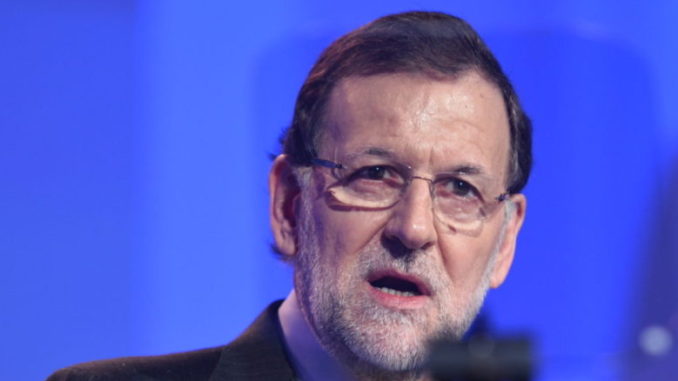
Prime Minister Mariano Rajoy was ousted on Friday by a No Confidence vote from the Cortes Generales, the Spanish version of the U.S. Congress. He is being succeeded by Pedro Sanchez, the Socialist party leader.
Rajoy had been Spain’s leader since taking office in 2011, and had steadily moved his traditionally conservative Popular Party (PP) toward strong nationalism in an attempt to change the party image. Prior to Rajoy, the PP had suffered from a perception that its politicians were more interested in political maneuvering than they were in promoting the country.
Nevertheless, even during his ouster Rajoy kept to the political line he had followed for seven years. Per the BBC:
During the second day of debate on Friday, Mr Rajoy admitted facing defeat and told MPs that it has been “an honour to leave a better Spain than I found”.
The No Confidence vote was triggered by growing anger and distrust due to a corruption scandal in the PP. The Gurtel Scandal has rocked Spain, demonstrating a trail of corruption for the PP dating back to 1982, when arrangements were put in place to effectively run a separate set of economic “books” apart from what was officially declared. From El Pais:
Spain’s High Court, the Audiencia Nacional, has slapped Gürtel mastermind Francisco Correa with 51 years in jail for heading a corrupt network that worked with party officials in Popular Party (PP)-run governments between 1999 and 2006. The case got its name from the German word for correa, which means “belt” in Spanish.
The court also found former PP treasurer Luis Bárcenas guilty of evading more than €11.5 million in taxes between 2000 and 2009, and of taking €1.24 million in bribes in exchange for facilitating public contract awards to business figures who were introduced to him by Correa.
Further investigation is pending to determine if taxes were evaded and if the alternate financing had been used illegally by others prior to 1999. The current charges stem only from the established documentation that has been recovered.
The Socialist leader, Pedro Sanchez was able to gain enough seats to claim power by leveraging Rajoy’s nationalism against him. Mustering support from the pro-separatist factions of Basque Nationalists and Catalan Nationalists whose political views were directly targeted by Rajoy’s rhetoric, Sanchez has taken control with only 84 of the 350 CG members as Socialist party members. Not having a strong majority for leadership will undoubtedly limit his available political movement, although as Prime Minister he will have the benefit of control of existing government bodies and greater media exposure. He has already stated that his ministers will not come from his party. (El Pais)
The Socialist Party (PSOE) and the PP are the two mainstays of Spanish politics, and both have been gravely wounded by the ongoing economic crisis in the country.
PSOE’s traditional prominence, combined with the economic crisis, caused the growth of a hard-left party, Podemos. Their growth has flagged, however, due to a combination of careful examination of their policies and a corruption crisis involving their leadership. (Guardian) While they had looked to overtake PSOE, they are now attempting to stay relevant. This is important because, currently Sanchez is refusing to allow Podemos into his coalition government so as to keep them from regaining prominence. While PSOE and Podemos share many principles, Sanchez is not willing to risk helping those who have declared him their main target.
Ciudadanos, the other opposition party, is currently rising in the polls ahead of the next Spanish election and stands above all other contenders.
From El Pais:
The recent opinion poll also shows that Ciudadanos would be the most-voted option were an election to be held today, with 28.3% support from Spanish voters, compared with 21.9% for the PP and 20.1% for the PSOE.
Ciudadanos is, in U.S. terminology, a cross between the Libertarians and the Democrats. They are effectively Libertarians that favor a welfare state to protect the needy. This seems counter-intuitive to most Americans, but due to the entrenchment of welfare within the Spanish system, every major party favors a welfare state. The PP has traditionally been a strongly Christian party that says it favors free markets but in practice favors high spending and taxation. The rise of Ciudadanos may be a positive for international freedom… if they can continue their momentum.

1 Trackback / Pingback
Comments are closed.